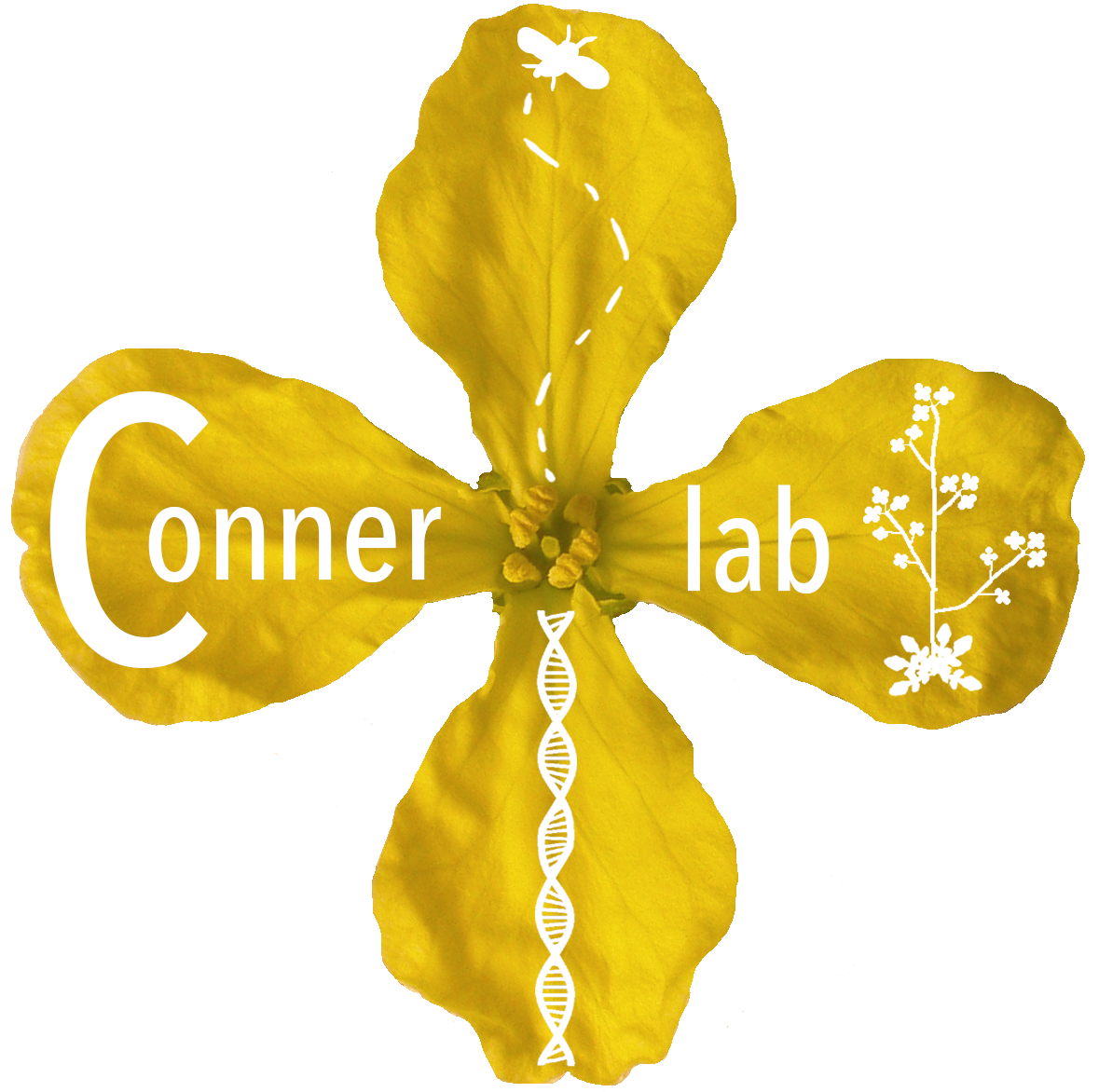Graduate Students
Students in my lab can choose to do research in any area of plant-insect interactions, evolutionary ecology, and/or ecological genetics, or in the application of these basic concepts to environmental problems, including invasive species, biological control, ecological effects of transgene escape, global climate change, and conservation genetics. Current and recent Ph.D research have focused on natural selection, adaptation, constraint, and mutation, mainly in floral traits. Species studied include wild radish, Arabidopsis lyrata and A. thaliana, five species of milkweed, and blue-eyed Mary.
I am based at MSU’s Kellogg Biological Station, located about 65 miles from the main campus. KBS is really a great place, and unlike any other field station I know of. We have 12 faculty who are here full time, all in ecology and evolution. We all teach some on the main campus (we teach about half of the grad courses in the EEBB program, see below), and also here at KBS in the summer. Our lab and greenhouse facilities are better than many (most?) universities, and we have almost 5,000 acres of land for field work, ranging from experimental ag fields to old fields to mature forest. The main site here is the former summer home of W.K. Kellogg, so we are on a beautiful lake. Our students generally spend their first one or two years on the MSU campus in E. Lansing, taking courses and teaching, with summers here, and then move here to finish their research.
Applying to MSU is a little confusing, because we have a degree-granting program in Ecology, Evolutionary Biology, and Behavior (EEBB), but you also need to be accepted by a department. I am in EEB, the Plant Biology department, and also have an appointment in Integrative Biology (formerly Zoology). I recommend applying to the Plant Biology department directly; you can join the EEBB program later if you wind up at MSU. Let me know if there are problems with applying, as I can likely solve them easily.
I think MSU has one of the best groups in evolutionary ecology and ecological genetics on the planet, particularly for plants. It is a very interactive group; for example, I have collaborated or am in active collaborations with Bradburd, Edger, Prather, Schemske, and Shiu, and interact often with most of the others on this list. I run an evolutionary discussion group each spring attended by many of the faculty above and their students.
One way to get a better idea of my program, and KBS/MSU in general, is to contact some of my current and recent former students; they are listed, with email addresses, on the People page. In 2003 I was named outstanding graduate advisor of the College of Natural Sciences at MSU, based on a nomination by my students.
Give me a call or send an email if you have questions, need more information, or want to discuss my research or research ideas.
Undergraduate Students
Check out these 3 programs at the Kellogg Biological Station:
KBS Internship Program (paid positions for MSU students throughout KBS)
KBS NSF REU Program (paid full-time research positions for non-MSU students)
Check out the cool blogs from our Summer 2018 undergrads Cassie, Rachel, and Samantha!
Postdoctoral Researchers
We are currently looking to fill an NSF-funded postdoctoral position in evolutionary genetics and genomics. The project addresses the interaction of selection, pleiotropy, and drift in phenotypic evolution using parallel latitudinal and altitudinal clines in trait loss in Arabidopsis. The postdoc would lead this work, which integrates extensive field work using near-isogenic lines and phenotypic manipulation in Italy, Spain, and Sweden, genomic tests of selection vs. drift, growth chamber common gardens, and lab identification of genes causing trait loss. Substantial publication and grant-writing opportunities available. Experience with, or a strong interest in, bioinformatics, molecular genetics, and field research necessary. Four years of funding available. Contact Jeff Conner (@JeffreyKConner; connerj[at]msu.edu) with questions; apply here.
Technicians
We are currently looking to fill an NSF-funded technician/project manager position in evolutionary genetics and genomics. The technician would manage and be involved in all aspects of the lab’s work, including extensive field work using near-isogenic lines and phenotypic manipulation in Italy, Spain, and Sweden, genomic tests of selection vs. drift, growth chamber common gardens, and lab identification of genes causing trait loss. Substantial publication opportunities available. B.S. degree required; M.S. preferred. Experience with, or a strong interest in, bioinformatics, molecular genetics, and field research necessary. Four years of funding available. Contact Jeff Conner (@JeffreyKConner; connerj[at]msu.edu) with questions; apply here.
